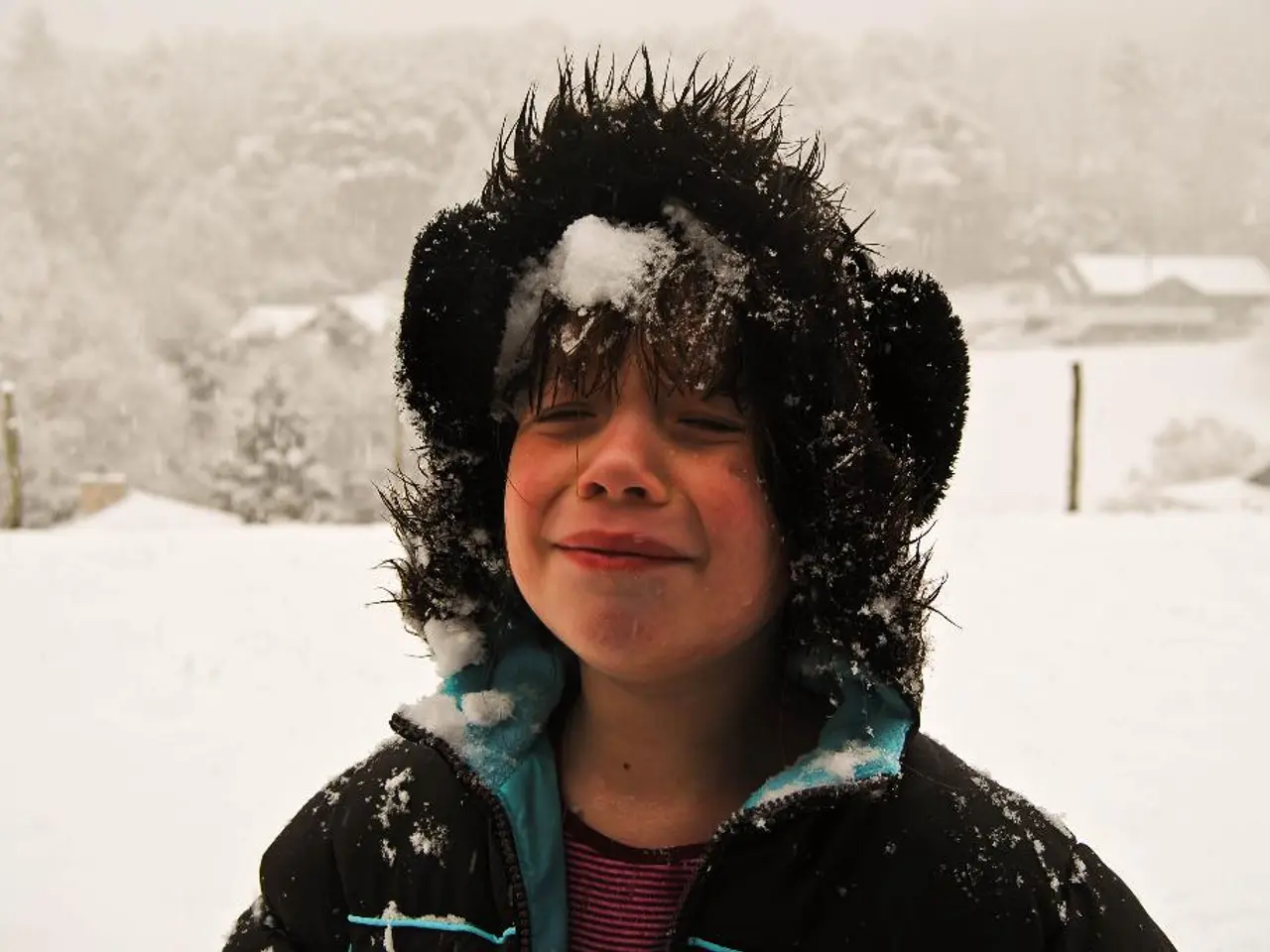Neighboring Strains Impact Children's Mental Well-being: A New Study Reveals Details
Study Reveals Link Between Neighborhood Disadvantage and Reduced Brain Responses in Children
A new study conducted by researchers at Binghamton University has shed light on the impact of neighborhood stress on the brains of children, particularly those from disadvantaged areas. The research, which involved 224 children aged 7-11, used brain recordings (EEG) during a simple monetary task to examine the children's neural reactions to rewards and losses.
The study found that kids in more disadvantaged neighborhoods showed weaker brain responses to both winning and losing. This "blunted" brain response was observed only in children whose parents had a history of major depression.
Neighborhood Disadvantage and Emotional Processing
This study suggests that neighborhood-level stress may contribute to changes in the way at-risk youth process emotions and rewards. Higher neighborhood disadvantage was associated with more muted RewP responses, a brain activity signal that reflects reward positivity. A muted brain response may indicate difficulty emotionally engaging with good or bad outcomes.
A muted response to good things could potentially reduce motivation to engage and do things. Chronic stress, according to Brandon Gibb, could dampen reactions to anything, whether it is good or bad. This could have significant implications for the mental health and well-being of children living in disadvantaged neighborhoods.
Family History of Depression and Brain Reward Processing
Researcher Elana Israel stated her interest in how neural reward processing relates to the risk for depression. Prior research has focused on stress at the individual level, but less research has looked at community-level stressors.
It is well-established in neuroscience and clinical psychology that family history of depression can modulate brain reward processing. Typically, individuals with a family history of depression already tend to show altered or reduced reward sensitivity in key brain regions.
Interactive Effect of Neighborhood Disadvantage and Family History of Depression
While the study's findings do not offer direct empirical data on the interaction between neighborhood disadvantage and depression family history on brain reward/loss responses, it is scientifically plausible — supported by broader literature — that children from disadvantaged neighborhoods who also have a family history of depression might experience compounded effects, resulting in even more pronounced blunting in neural responses to rewards and losses.
Implications and Future Research
The study's findings highlight the potential impact of community-level stressors on emotional processing and risk for depression in at-risk youth. Further research is needed to confirm the interactive effect of neighborhood disadvantage and family history of depression on brain reward/loss responses.
The study used household zip code data to assess the neighborhood disadvantage of the children. Measures such as the Area Deprivation Index, crime risk, and Child Opportunity Index were used as measures to gauge neighborhood deprivation and stress levels. The children completed a computer-based guessing game with real monetary rewards and losses.
In conclusion, this study provides valuable insights into the impact of neighborhood stress on the brains of children, particularly those from disadvantaged areas. The findings underscore the importance of addressing community-level stressors to support the mental health and well-being of at-risk youth.
[1] Israel, E., Gibb, B., & Team (2023). Neighborhood disadvantage and blunted neural reward responses in children with a family history of depression. Journal of Child Psychology and Neuroscience.
The study suggests that neighborhood-level stress might influence the way at-risk youth process emotions, rewards, and mental health, as higher neighborhood disadvantage was associated with more muted RewP responses, a brain activity signal linked to reward positivity (health-and-wellness, mental-health). Furthermore, the study implies that children from disadvantaged neighborhoods with a family history of depression might experience compounded effects, resulting in even more pronounced blunting in neural responses to rewards and losses, potentially impacting their motivation and overall mental health (science, mental-health).




